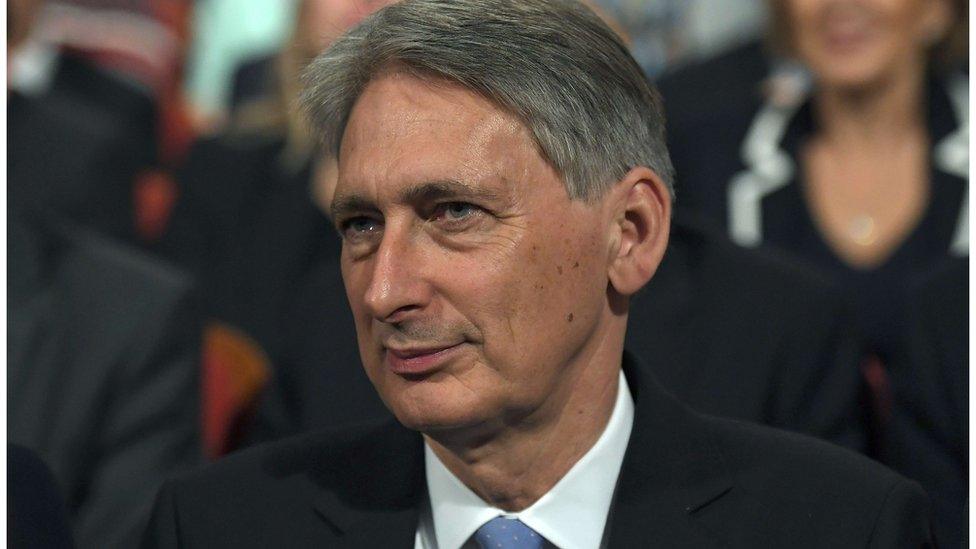Hammond: There will be no 'spending splurge'
- Published
- comments

After a day of volatility for the pound not matched since the night of the referendum, the Chancellor said that any fresh support for the economy via public spending would be cautious.
Speaking to me at the International Monetary Fund autumn meeting in Washington, Phillip Hammond said that although sterling's rapid fall was partly "technical", markets would have to get used to volatility while Britain negotiated its departure from the European Union.
He said that it was important to "look through" currency volatility to the fundamentals of the UK economy which he said were strong.
"[There will be] no spending splurge," he told me.
"What we have said we are going to do is create within a new fiscal framework enough space for the government to be able to respond to the turbulence in the economy that I have talked about.
"As we go through this period we want to be able to provide fiscal support if necessary.
"At the moment I can't predict whether that will be necessary at the time of the Autumn Statement in November.
"We will have more data by then and if the data show that the economy needs support we will make carefully targeted, precise interventions aiming to support the economy through investment in infrastructure which not only gives a short term boost but gives a long term benefit to the UK's productivity."
Support on offer
He told the BBC the government would take the "necessary measures" to support the economy, but that did not mean abandoning attempts to control Britain's high levels of debts.
He said that despite abandoning the pledge made by George Osborne to eliminate the deficit by 2020, the Treasury would provide a "clear set of benchmarks" about tackling the deficit.
Mr Hammond said it was "not credible" to have the government's fiscal position "unanchored" and that any new target on balancing the books would be achieved "over a sensible period of time".
On sterling, the Chancellor said investors who control billions of pounds of sterling assets were "resetting their expectations" as it became clear that Britain would not seek to engineer a "soft" or partial departure from the European Union.
He said the "final foot had dropped" in investors' minds that "it is going to happen".
Turbulence ahead
That could suggest further downward pressure on sterling as many investors believe that UK assets will be less valuable if Britain is outside the European Union single market, Britain's biggest destination for exports.
Others believe that after a period of volatility, the UK economy will bounce back, which could see sterling strengthen.
"Markets will go up and down - markets respond to noises," the Chancellor said.
"We are going to go through a period of volatility, there will be lots of commentary going on and we can expect to see markets being more turbulent over this period and we should prepare for that."
Mr Hammond said he wanted to ensure the "maximum possible access" to the European single market for businesses but that it was not yet time to set out the details of Britain's negotiating position.